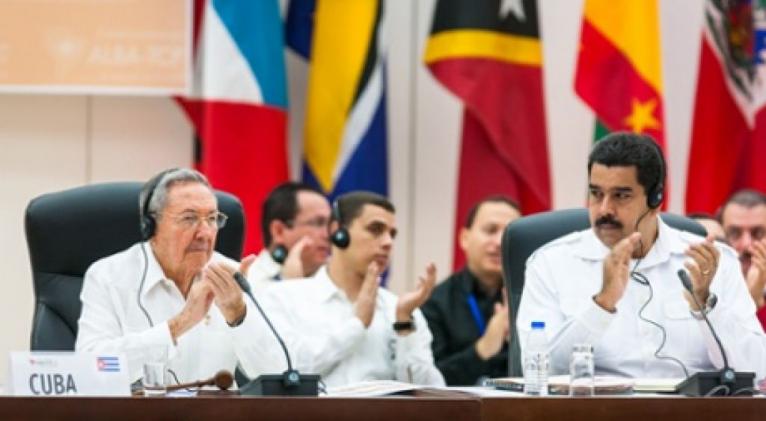Cuba calling: what this small island can teach the world about disease control
especiales

Guatemala, Pakistan, Indonesia, Haiti. Four different nations that share a common experience: in the past decade, they were all struck by natural disasters which overwhelmed their under-staffed and under-funded public health systems. Into the rubble, flooding, and chaos of these distinct cultures and contexts, Cuba dispatched a specialised disaster and epidemic control team to support local health providers. It was a story of unprecedented medical solidarity by a developing country which few media outlets picked up – until now.
The Henry Reeve Brigade, as it’s known, was established in 2005 by more than 1,500 Cuban health professionals trained in disaster medicine and infectious disease containment; built on 40 years of medical aid experience, the volunteer team was outfitted with essential medicines and equipment and prepared to deploy to US regions ravaged by Hurricane Katrina (the offer was rejected by the Bush administration). Today, Cuba’s Henry Reeve Brigade is the largest medical team on the ground in west Africa battling Ebola.
The small island nation has pledged 461 doctors and nurses to provide care in Sierra Leone, Guinea and Liberia, the largest single-country offer of healthcare workers to date. While United Nations Secretary-General Ban Ki-moon decried the pallid aid commitment from around the globe calling for “a 20-fold resource mobilisation and at least a 20-fold surge in assistance” Cuba already had 165 of these specially-trained healthcare workers on the ground in Sierra Leone. Each of these volunteers, chosen from a pool of 15,000 candidates who stepped forward to serve in west Africa, has extensive disaster response experience.
Nevertheless, preparation for this mission required additional, rigorous training at Havana’s Pedro Kourí Institute of Tropical Medicine with biosecurity experts from the United States and the Pan American Health Organisation. This rapid mobilisation of sorely-needed health professionals begs the question: how can a poor developing country spare qualified, experienced doctors and nurses?
By pursuing a robust medical education strategy, coupled with a preventive, community-based approach, Cuba, a country of just 11.2 million inhabitants, has achieved a health picture on par with the world’s most developed nations. This didn’t happen overnight. Rather, Cuba’s admirable health report card results from decades of honing a strategy designed specifically for a resource-scarce setting.
By locating primary care doctors in neighbourhoods and emphasising disease prevention, the health system – which is universal and free at the primary, secondary and tertiary levels – makes care accessible and keeps people as healthy as possible, as long as possible, saving resources for more expensive treatments and interventions in the process.
But prevention and health promotion by community-based healthcare workers are only part of the story. Cuba’s policies and practices, both at home and abroad (currently more than 50,000 Cuban health professionals are serving in 66 countries) are built on several principles proven effective in resource-scarce settings.
First, coordinating health policies at the local, regional, and national levels is essential; this is particularly important where infectious diseases are concerned since uniform protocols are integral to containment.
Next, health initiatives must be cross-sectoral and based on integrated messages and actions. A fragmented, uncoordinated response by and among different agencies can prove dangerous and even deadly. This was tragically illustrated by the death of Thomas Eric Duncan in Dallas and the US Centers for Disease Control allowing a nurse who has Ebola to travel on a commercial flight.
Finally, infectious disease outbreaks must be addressed quickly – easier said than done in poor settings, where public health systems are already strained or collapsing already.
The Ebola outbreak snaps the need for Cuba’s approach into sharp relief: only a coordinated response, provided by well-trained and - equipped primary healthcare professionals will contain this – and future – epidemics. Indeed, policymakers such as World Health Organisation’s Margaret Chan and US secretary of state John Kerry have lauded the Cuban response, underscoring the importance of collaboration as the only solution to this global health crisis.
Forging this solution, however, requires harnessing the political will across borders and agencies to marshal resources and know-how. Havana took up the challenge by hosting a special Summit on Ebola with its regional partners and global health authorities on 20 October. Noticeably absent were US health representatives; if we’re to construct a comprehensive, integrated, and effective global response, all resources and experiences must be coordinated and brought to bear, regardless of political differences. Anything less and Ebola wins.













Add new comment